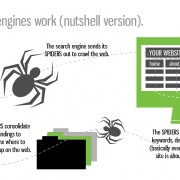How Do You Determine the Best Adhesive for Your Specific Industrial Application?
Selecting the right adhesive for your industrial application can feel like navigating a maze. With so many options available, from hot melts to liquid adhesives, it’s easy to feel overwhelmed. But don’t worry—choosing the best adhesive doesn’t have to be a daunting task. By understanding your application’s specific needs and the various types of adhesives available, you can make an informed decision that ensures both efficiency and durability.
In this post, we will discuss the key factors that will help you determine the perfect adhesive for your project. So, without any further ado, let’s get started!
Know Your Application Requirements
The first step in choosing the right adhesive is clearly defining your application’s requirements. Start by considering the materials you’ll be bonding. Are you working with metal, plastic, wood, or a combination of materials? Not all adhesives are compatible with every material, so knowing the substrates involved is crucial.
Next, think about the environmental conditions your adhesive will need to withstand. Will the bonded materials be exposed to extreme temperatures, humidity, or harsh chemicals? Different adhesives react differently under such conditions.
Load and stress factors also play a significant role in adhesive selection. Consider how much mechanical stress or vibration the bonded materials will endure. If the application involves moving parts or constant stress, you’ll need an adhesive that offers strong initial bonding and long-term durability.
Exploring Types of Adhesives
Now that you’ve outlined your application’s needs, it’s time to explore the types of adhesives available and their specific uses.
- Hot Melt Adhesives: They are popular for their quick bonding and ease of use. They’re ideal for packaging, assembly, and other applications where speed is essential. These adhesives work well with various materials and are especially useful in high-volume production environments. However, as mentioned earlier, there may be better choices if your application involves high temperatures.
- Liquid Adhesives: They offer versatility and are used across many industries. They’re suitable for bonding various materials, including metals, plastics, and wood. Liquid adhesives are often chosen for their strong bond strength and flexibility, making them a go-to option for applications that require a durable and resilient bond. Depending on the formulation, liquid adhesives can be applied via spray, brush, or roller, providing flexibility in application methods.
- Cyanoacrylate Adhesives: They often known as super glues—are perfect for small, precise applications that require a fast-setting bond. These adhesives are excellent for bonding non-porous materials like metals and plastics. Their rapid curing time makes them ideal for quick repairs and assembly tasks where speed is critical. However, their high bond strength can sometimes be a downside if you need to reposition the materials after bonding.
- Spray Adhesive: It is another versatile option, particularly useful for covering large surface areas quickly. They’re commonly used in automotive, upholstery, and crafts. Depending on the type, spray adhesives provide a uniform coating and can be used for temporary or permanent bonds. Their ease of application makes them a favorite for projects where a smooth, even bond is needed.
Remember, whatever adhesive you choose, it’s crucial to buy from a supplier who offers high-quality products and exceptional support. For instance, Franklin adhesives available at Lanco Adhesives are a prime example of the reliable and top-tier options you should consider. With the right supplier, you’ll get the best products and the guidance and assistance needed to ensure your project’s success.
Evaluate Adhesive Properties
When selecting the best adhesive for your industrial application, evaluating its properties is crucial to ensure it meets your specific needs. Bond strength is a key factor; it determines how well the adhesive will hold the materials together under various conditions. For applications involving heavy loads or significant stress, you’ll need an adhesive with high bond strength to ensure durability.
Curing time is another important property to consider, as it affects your production speed. Fast-curing adhesives can increase efficiency but require precise application techniques to avoid errors.
Additionally, consider the adhesive’s flexibility and resilience. If your application involves materials that will experience movement, vibration, or changes in temperature, you’ll need an adhesive that remains flexible without losing its bonding capabilities.
Finally, consider the adhesive’s resistance to environmental factors such as moisture, chemicals, and UV light. An adhesive with the right properties will ensure your application is strong, durable, and long-lasting under real-world conditions.
Testing and Validation
Before committing to an adhesive, it’s wise to conduct testing and validation to ensure it performs as expected under real-world conditions. Prototyping and testing allow you to observe how the adhesive behaves with your specific materials and in your particular environment. This step is crucial to avoid costly mistakes and ensure the adhesive meets your performance requirements.
Quality assurance should also be part of your selection process. Work with suppliers who can provide consistent product quality across batches so you don’t have issues with varying performance over time.
Conclusion
We hope this guide has helped demystify the selection of the right adhesive for your industrial application. By carefully considering the above-mentioned factors, you can make informed decisions and ensure the success of your projects. So, take your time, research, and make an informed decision that you’ll be satisfied with for years.














Leave a Reply
Want to join the discussion?Feel free to contribute!